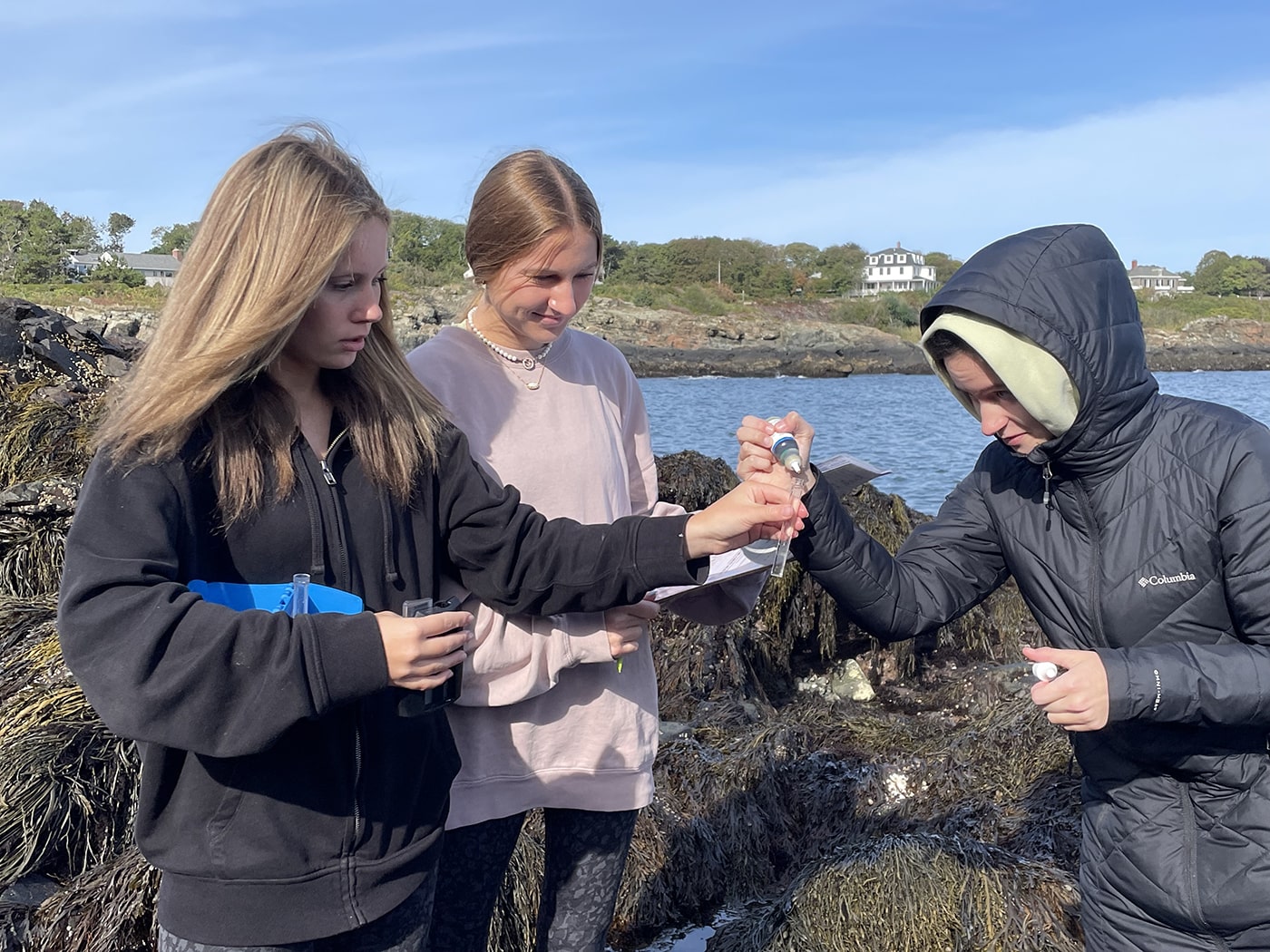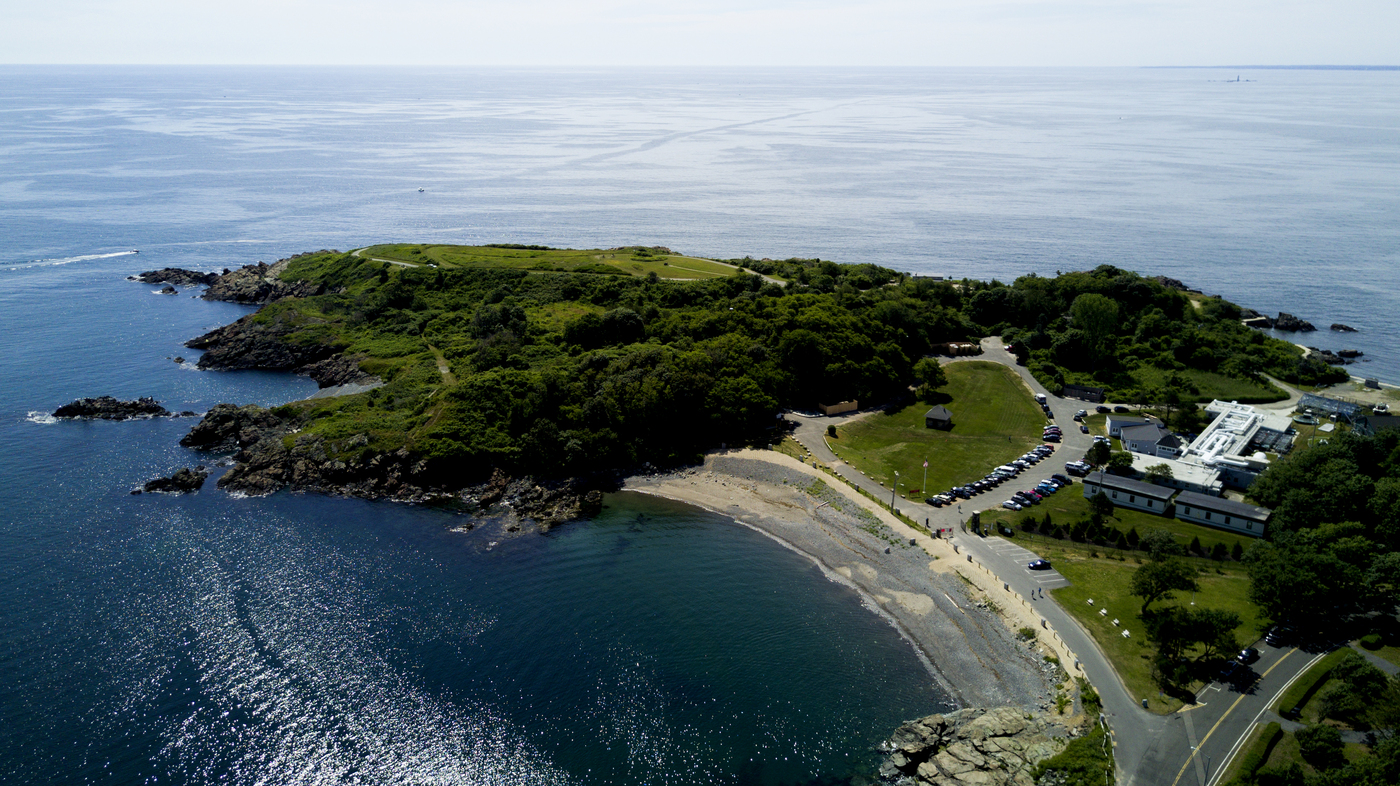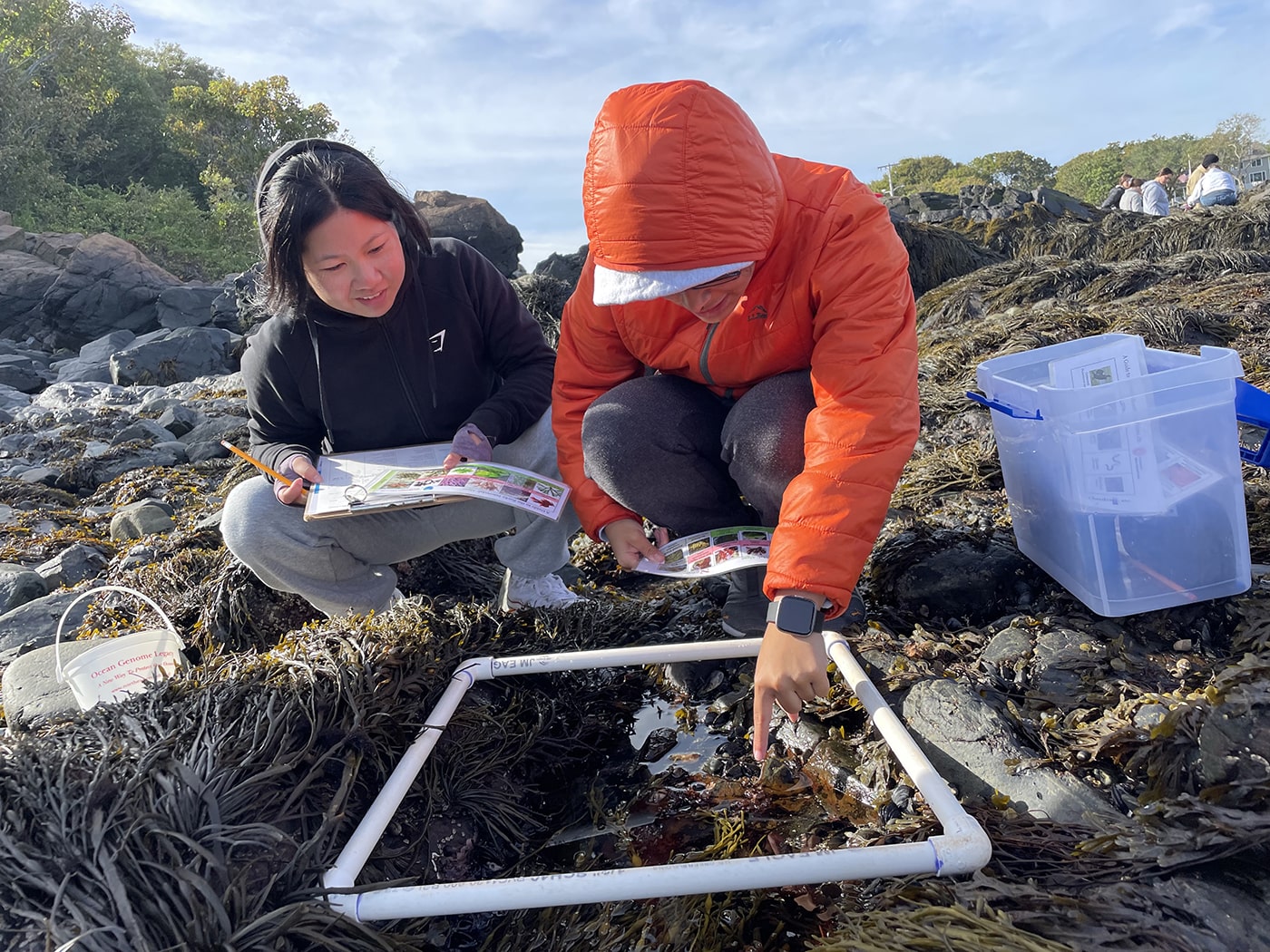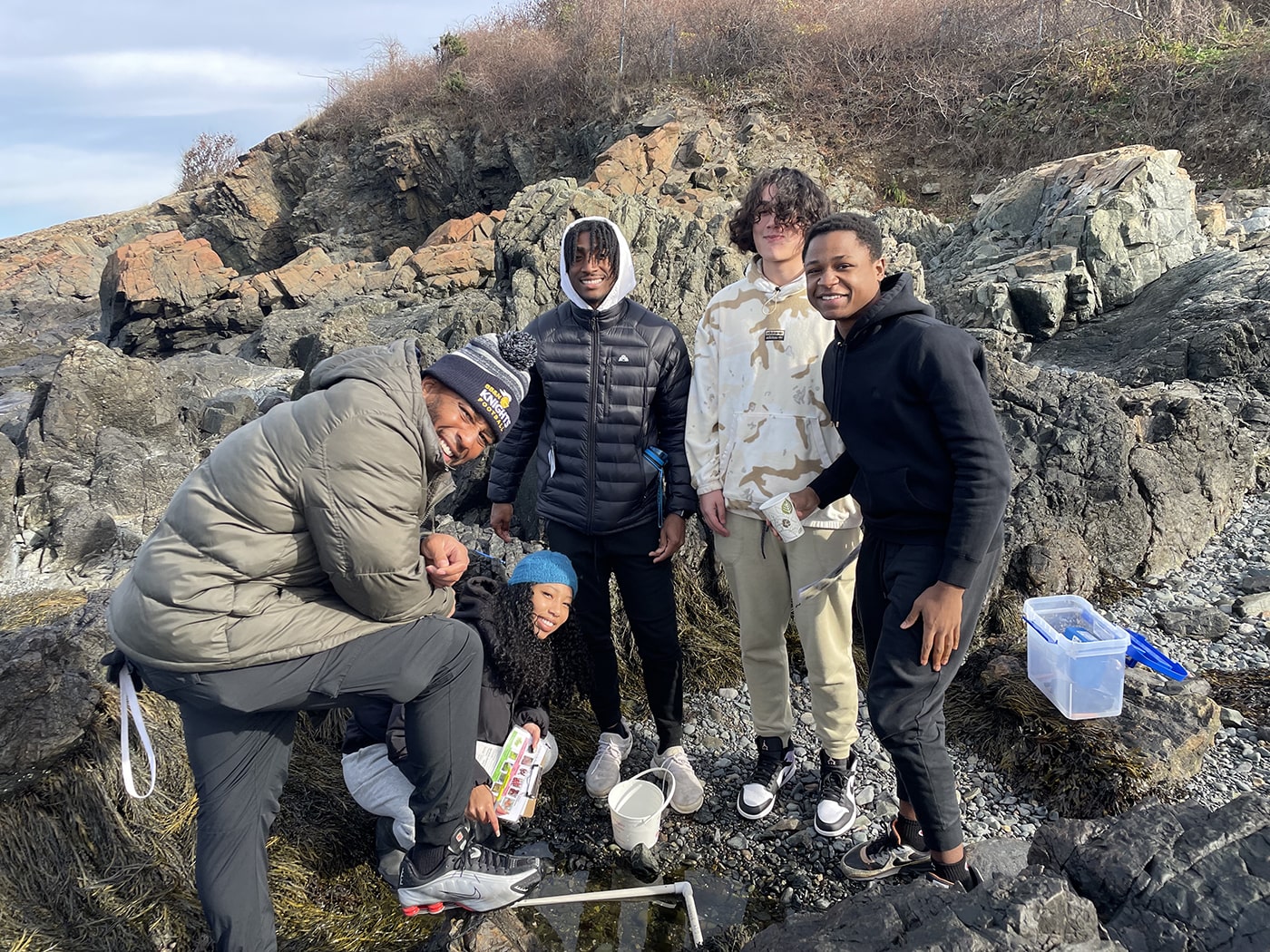FIELD TRIPS TO THE MSC
The centerpiece of the MSC Outreach Program is the rocky shore field experience. Scientists have been studying the rocky shore at Nahant for over 150 years, and this two to three hour student experience introduces students to both marine life and how scientists conduct field study in this pristine coastal setting. To get an idea of what a typical program entails, please check out this brief introductory video.
Please contact us at [email protected] with your visit request and our team will respond as soon as possible via email to discuss program availability.
There are limited field trip dates available each year, dependent on the tide schedule, other MSC programming, and staffing, so please include multiple dates that could work for your group, and request well in advance of the visit.
All of our available field trip dates for the 2024 season (March – November) are now booked. Bookings will begin for the 2025 season in September 2024.
Description
Although this is highly dependent on grade level, typical field experiences include the following, with younger students tending to focus more on biodiversity and older students tending to focus more on field research skills:
- What Lives Here – Identification and classification of common marine invertebrates and algae
- Why Does it Live Here – Hypothesizing, testing, and analyzing how abiotic factors affect the distribution of life on the rocky shore
- How Does it Live Here – How species adapt to these challenging conditions
- How Do We Know All This – How scientists collect data and conduct field research on the rocky shore
Students will collect real data in the field that will be available to teachers to bring back to their classrooms. Students will also get a chance to visit our touch tanks and interact with species they may not have found on the shore. If time permits, students will be escorted across the dramatic geology of East Point and learn about the area’s unique and renowned natural and human history.

Preparing for your trip
Visit our Educator Resources page to access resources that will help prepare for your field trip to the MSC. These include a video you can show students about what to expect, PowerPoint presentations you can use to tee them up for the visit, species cards to help them learn about what organisms they may encounter, an educator pack with further pre- and post-field trip activity suggestions, and a beautiful keyed species ID poster about the rocky shore.

Facilities and amenities
There are no vending machines or cafeteria at our site, but you are welcome to bring snacks/lunches. Most groups choose to have lunch either during or after their field program, and the NUMSC hosts a large lawn that is perfect for picnicking. Trash bags will be provided to you for clean-up; these can be deposited in our dumpster. Restrooms are available in the main building and classroom area. Use of the restrooms must be supervised by teachers or chaperones, and in a manner respectful of the faculty, staff, and students who work in the building. Unless previously arranged, access to any research areas is prohibited. Most groups are able to take a walking tour of East Point, where ticks proliferate in summer months. It is advised that all persons check themselves for ticks after completing the program.

Scheduling
Programs are offered year-round, but typically take place between April and November. They are booked to coincide as closely as possible with low tides, consideration of which is paramount for the intertidal field experience. Bookings and are filled on a first-come, first-served basis, and may be made at any time.
Programs are offered during the MSC’s regular hours of operation, which are 8:30am to 4:30pm, Monday through Friday.
Cancellation
You may cancel or reschedule your program more than 30 days prior to the start of the program. Cancellation after that time will incur a $100 charge, unless we are able to rebook another program in your time slot. Any decision to cancel a program will be discussed with you. We will not cancel a program due to rain unless it is forecast to downpour persistently. We will also cancel if there is a strong likelihood of thunder, lightning, or heavy winds that render the shoreline unsafe. Every effort will be made to reschedule any programs cancelled due to weather.
Requirements
A minimum of three weeks is required to ensure that all of the liability paperwork is in order. However, many schools book months in advance to secure the most ideal dates.
Unless prior permission is granted, we require a minimum of TWO chaperones for every visiting group. Chaperones are required at the following ratios:
- Grades PreK-2 – One chaperone for every 6 students
- Grades 3-5 – One chaperone for every 10 students
- Middle School – One chaperone for every 15 students
- High School – One chaperone for every 30 students
Chaperones are responsible for keeping students on task and cooperating with instructions and must be willing and physically able to walk with students around the tidepools of the rocky shore.
Additional information will be sent to you about what to bring and what to expect.

Cost & How to Pay
2023 Program Fees (per group):
- 3-hour guided field program – $350
- 30-minute classroom visit – $125
- 45-minute classroom visit – $175
Prices are subject to change and will be confirmed at the time of booking. A group is defined as 30 or fewer students (grades K-12) or 20 students or fewer (PreK). We can accommodate up to two groups per day, i.e., up to 60 students.
You may bring a check with you, pay online, or the NUMSC can send you an invoice after your program. Checks should be made out to Northeastern University.
Additional Information
There is no swimming allowed at the MSC at any time, although participants’ feet may get wet in the tidepools.
Restrooms are available for use in the main building for guided programs. Unless previously arranged or as part of a guided program, access to laboratory and research areas is prohibited. Use of the restrooms must be supervised by teachers or chaperones and in a manner respectful of the faculty, staff, and students who work in the building.
Most groups choose to have lunch either during or after their field program, and the MSC hosts a large lawn that is perfect for picnicking.
Collection or removal of ANY items (e.g., live animals, sand, shells, seawater) from the grounds is strictly prohibited without prior permission from the MSC Director. Visitors should not cause harm to any living organism at any time. Disruptive, dangerous, or disrespectful behavior will not be tolerated.
The weather in Nahant is usually a bit cooler and windier than on the “mainland.” Layers of clothing, a change of shoes and clothes, and/or rain gear are highly recommended. A hat is advisable.